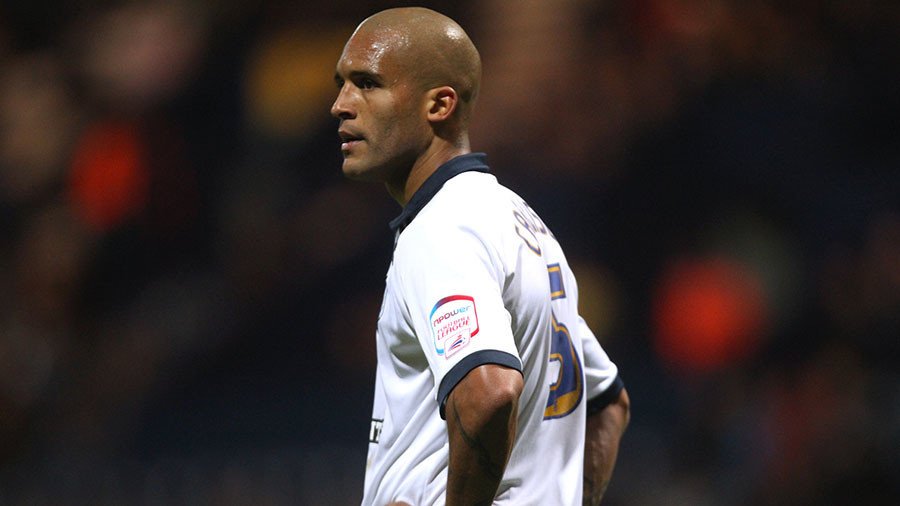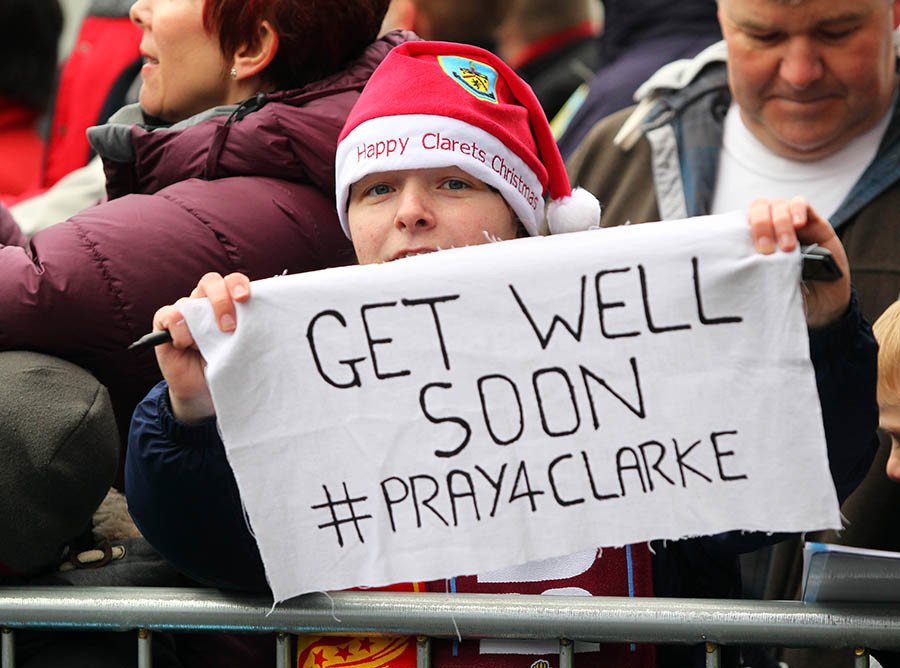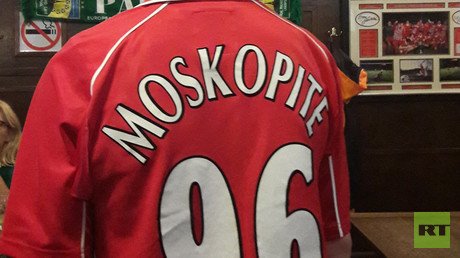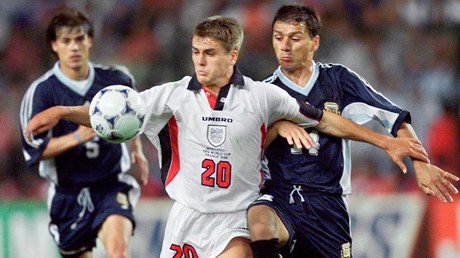'Weight lifted when you voice what's in your head' - ex-Premier League footballer on mental health

As a former Premier League footballer, Clarke Carlisle played at the sport's highest level but for all of his success on the field he struggled to cope with mental health issues off of it.
The advent of modern sports science has meant that the management of an athlete's physical well-being is big business. Football clubs employ teams of masseurs to eek out lactic acid from aching muscles or install hyperbaric chambers to promote recovery as the season rolls on and the games pile up. But do football clubs take a broken mind as seriously as a broken leg?
Carlisle, the former QPR and Burnley defender, was one of the minute fraction of players who 'made it' as a professional footballer. He played over 30 games in England's top flight, a dream for soccer fans across the world, but the weight of expectation and the demands that come with top-level sport proved to be the entry-point into his own personal nightmare.
Speaking to RT's Stan Collymore, Carlisle outlined the battle that his own mind played on him and the methods he uses to try and conquer it.
Ahead of #MentalHealthWeek in the UK next Monday, The Stan Collymore Show tomorrow ( Sky channel 512, Freeview 234, Freesat 206, 8:30am/1:30pm/5:30pm /9:30pm) has a special 30 minute chat with Clarke Carlisle.An incredible 30 mins. That's a promise. pic.twitter.com/LtHItLdqux
— Stan Collymore (@StanCollymore) May 10, 2018
"It's very much about being the alpha male," Carlisle says of his experiences of growing up around football. "One of the misconceptions about football I find is that people have a look at a football club and they think everyone is teammates. You couldn't be further from the truth.
"These guys are teammates, but first and foremost they're your opponents. There are 40-45 guys in a squad and only 11 can go on that pitch [...] so each day in training I'm fighting against this guy next to me."
Children in their young teens (and in some circumstances even younger than that) are plucked out of school and placed in football academies across the globe as scouts gamble on finding the next big talent or, at the very least, a saleable commodity to swell the club's bank account in a few years time.
"It was very much break 'em to make 'em," Carlisle explains. "We were ground into dust. Young players were seen and not heard. If they said 'jump', you said 'how high?' It was drilled into you that you had to be the best. This is from 16 years of age.
"There is a ridiculous amount of people for whom football has formed their identity and then stolen their identity without giving them a livelihood or a career."
For RT's Collymore, this is a story that sounds very familiar. At one point he was the most expensive transfer in English football history but even the plaudits and fame which came with being an international standard professional footballer began to erode his mental state - something which he says almost cost him his life.
"For me that was very difficult. 2000/2001, I retired. I said I was going to give myself a year off, it ended up being three years," Collymore says. "I put loads of weight on. Motivation was incredibly low. Lots of personal issues - I was suicidal.
"I came through it, reintroduced exercise into my life. I stayed close to friends and family, which I know is something that is important to you. Even in the last 10 years as a broadcaster, every year or 18 months I have a nasty bout where I have to go to this toolbox: exercise, giving myself permission to relax and what have you.
"2001 was my first attempt to take my own life. At that point in time there was nothing in my toolbox and there was zero support services. When I had my stomach pumped at hospital I was supposed to see the psychiatrist before I was discharged but the club discharged me because they wanted me in for training."
However it wasn't just the football clubs who failed to understand these issues, the players suffering from the ill effects of an unhealthy mind didn't quite know how to express themselves either.
"It's an unknown unknown," says Carlisle. "How can you ask a question about something you don't have any understanding of? As time progressed from 2001 to 2010 I kept having sporadic outbursts of really irrational behavior and the majority of it was based around alcohol. What I didn't understand is that I was self-medicating. I was trying to get away from the emotional distress.
"What I didn't know at the time was that drinking was a symptom of my problem. Once I was sober I was still in this cycle of irrational behavior and it just transferred to gambling or transferred to sex or transferred to a computer game."

Nowadays Carlisle, an advocate for mental health awareness, aims to use his experiences to assist those who haven't come to terms with their own struggle, or people who don't fully understand what they are experiencing.
"You don't have to come out and broadcast it to the world. You don't have to tell everyone. It is imperative that you tell someone. My experience is that if you find someone who you love, who you trust or who is qualified - someone who fills one of those three things - and tell them what is going on.
"The power of the negative thoughts, the power of the impact of your adverse mental health issues, it decreases immediately. There is a weight lifted when you actually voice what is going on in your head."














